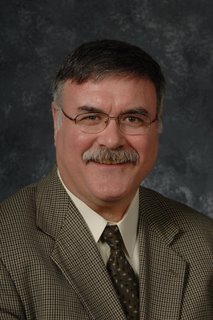
In his Epidemics, the great healer Hippocrates gave this advice: 'As to diseases, make a habit of two things -- to help, or at least to do no harm.' The Roman physician Galen said it more compactly, as 'primum non nocere,' meaning, 'first of all, do no harm.'
Since the era of Hippocrates, the keystone of medicine has always been that physicians can be relied on to do their best for their patients. To borrow a phrase from Star Trek, this is the 'Prime Directive' of medicine: doctors are always to heal, never to harm.
Apparently, that may change, if the Royal College of Obstetricians and Gynaecology has its way. As reported in the Scotsman news service: "The College is arguing for 'active euthanasia' to be considered for the overall good of parents, sparing them the emotional burden and financial hardship of bringing up the sickest babies."
That a professional medical society would seriously make such a statement is rather disturbing. It is a sad commentary on the way the medical practice has changed since World War II. Instead of focusing on the goal of healing, modern medicine emphasizes relief of suffering. This subtle change tends to diminish the patient as person, and instead targets the disease process itself, to the detriment of the healing profession and society as a whole.
At least there are some voices of reason in the UK these days. Neonatologist John Wyatt has said it well: "Intentional killing is not part of medical care . . . [O]nce you introduce the possibility of intentional killing into medical practice you change the fundamental nature of medicine."
In the midst of the wonderful technological advances in health care, physicians must never abandon their Prime Directive.
Since the era of Hippocrates, the keystone of medicine has always been that physicians can be relied on to do their best for their patients. To borrow a phrase from Star Trek, this is the 'Prime Directive' of medicine: doctors are always to heal, never to harm.
Apparently, that may change, if the Royal College of Obstetricians and Gynaecology has its way. As reported in the Scotsman news service: "The College is arguing for 'active euthanasia' to be considered for the overall good of parents, sparing them the emotional burden and financial hardship of bringing up the sickest babies."
That a professional medical society would seriously make such a statement is rather disturbing. It is a sad commentary on the way the medical practice has changed since World War II. Instead of focusing on the goal of healing, modern medicine emphasizes relief of suffering. This subtle change tends to diminish the patient as person, and instead targets the disease process itself, to the detriment of the healing profession and society as a whole.
At least there are some voices of reason in the UK these days. Neonatologist John Wyatt has said it well: "Intentional killing is not part of medical care . . . [O]nce you introduce the possibility of intentional killing into medical practice you change the fundamental nature of medicine."
In the midst of the wonderful technological advances in health care, physicians must never abandon their Prime Directive.
Original news article: http://news.scotsman.com/scitech.cfm?id=1639102006

No comments:
Post a Comment